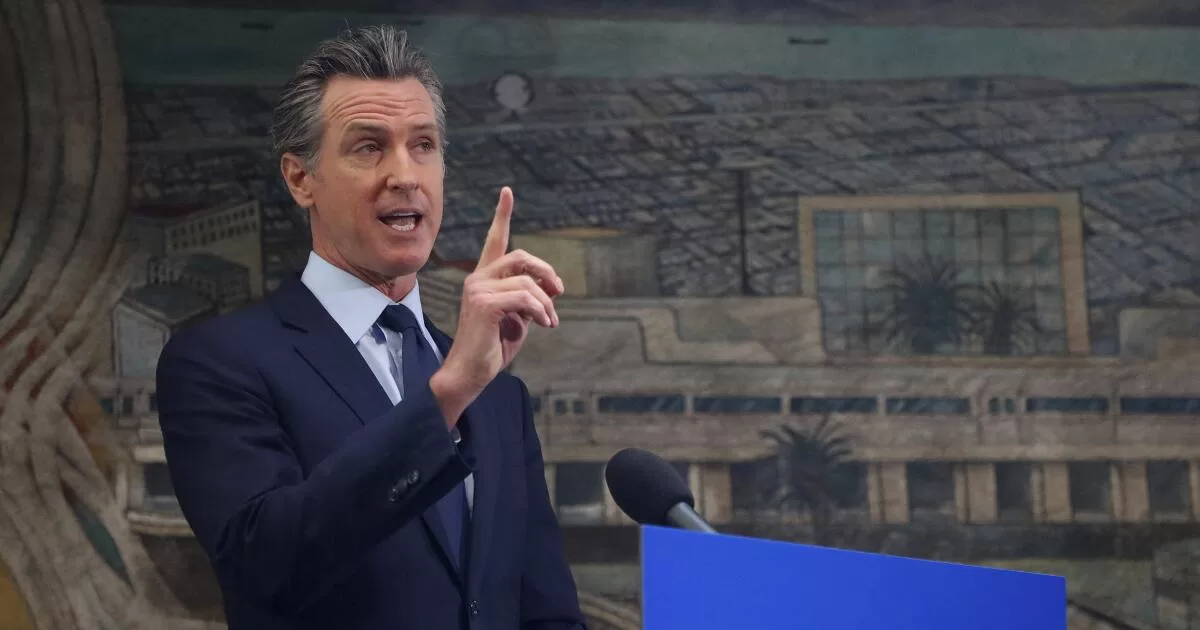They cobbled together what was dubbed a post-pandemic Middle Class Tax Refund. In truth, low-income people made out a lot better than the middle class. And it wasn’t a refund at all. It was a straight giveaway of general fund cash.
The tab was $9.5 billion. And don’t the Sacramento politicians wish they had that money now as they face a projected $45-billion budget deficit! If it were currently stashed in a reserve, they could avoid a lot of cuts to some good state programs used by Californians.
But in 2022, the budget experts were projecting a $100-billion surplus. And it was an election year. Newsom was running for a second term after having survived a recall attempt the previous year. Most legislators also were up for reelection.
So it seemed like a grand idea to throw nearly $10 billion out a Capitol window at people who really didn’t care whether they got any of it or not.
And the whole thing was confusing — even a little suspicious. The state should have simply sent out checks, as it does for income tax overpayments. Instead, it offered recipients an option to sign up for direct deposit into their bank accounts. Or they could receive a prepaid debit card from a private contractor. For many, the card looked like a come-on or a scam. Lots of cards got tossed.
Evidence of the flawed money distribution system was reported recently by The Times’ Jon Healey, who wrote that 624,000 Californians still hadn’t touched the free cash. They hadn’t activated their cards.
The grants ranged from $200 for individuals to $1,050 for couples, depending on their incomes. Individuals earning up to $250,000 and couples making up to $500,000 received something.
I got $200 that I absolutely didn’t need. Friends making much more also were sent cards — and felt a little sheepish about it.
I would have preferred that the state spend its windfall on needed infrastructure such as water facilities, wildfire prevention, alternative energy and homeless shelters. Or at least socked it away in a savings account.
Now, both the governor and Legislature are proposing an increase in required savings. Good idea. But not this red-ink year.
State budgeting has become like California weather: A few years of surplus precipitation followed by periods of severe drought.
In the Capitol, there are times of fiscal boom and bust. It’s aggravated by the state leaning too heavily on rich people’s volatile capital gains. Politicians haven’t mustered the courage to fix the problem by updating the tax system. But that’s an old song of mine.
Right now, Newsom and legislative leaders are struggling behind closed doors to agree on a budget that must be balanced. At least on paper. They’re working on a revised $288-billion proposal the governor sent the Legislature last month.
The deadline for legislative passage of a budget is June 15. If the lawmakers go beyond that, they lose their pay and expense money. At this writing, they are far from a final deal with the governor.
So it’s likely that what gets passed by the deadline is a budget in name only — a hollow spending plan lacking in major details.
The specifics presumably will follow in dozens of so-called “trailer bills” that will quickly be passed without much opportunity for public scrutiny before the budget takes effect July 1.
That’s not the preferred good government way to do legislative business if you care about transparency. But it’s how the Legislature operates.
There are tough choices to be made by a Democratic-dominated Legislature that enjoys spending and hates cutting.
These are two major issues, as reported by Times budget writer Taryn Luna:
Higher fee rates for Medi-Cal providers:
The governor and Legislature agreed last year to raise reimbursement rates for doctors and other providers of Medi-Cal healthcare for poor people. Now Newsom wants to take away $6.7 billion earmarked for the rate hikes over multiple years.
Bad idea. For years, many doctors have been turning away Medi-Cal patients, contending they lose money on the miserly reimbursements. At the same time, Sacramento keeps expanding the list of people eligible for Medi-Cal. In fact, the state plans to spend $3.2 billion during the next fiscal year on the extension of Medi-Cal to undocumented immigrants ages 26 to 49.
Expanding care is meaningless if doctors refuse to treat people.
Minimum wage hike for health workers:
Newsom signed a bill last year to raise the minimum hourly wage for healthcare workers to $25, effective about now. But the governor emphasized to labor negotiators that “no way in hell” would he allow the increase to take effect if the state faced a gaping deficit.
So the governor deleted $2 billion for the hike from his May budget revision. Upset Democratic legislators are siding with their patron unions in claiming Newsom exaggerated the cost. And they’re demanding at least $100 million.
OK. Maybe $100 million. Definitely not $2 billion.
There are many more budget disagreements — like over housing for homeless people, street cleanups after the homeless leave, business tax credits and prison closings.
One screwup the politicians hopefully will avoid is to merely kick the can — enact a “balanced” budget mainly with accounting gimmicks. That would surely lead to even more red ink to sop up next year.
